The Innocents is a 1961 British psychological horror film directed and produced by Jack Clayton, and starring Deborah Kerr, Michael Redgrave, and Megs Jenkins. Based on the novella The Turn of the Screw by the American novelist Henry James, the screenplay was adapted by William Archibald and Truman Capote, who used Archibald's own stage play—also titled The Innocents—as a primary source text. Its plot follows a governess who watches over two children and comes to fear that their large estate is haunted by ghosts and that the children are being possessed.
| The Innocents | |
|---|---|
Theatrical poster | |
| Directed by | Jack Clayton |
| Produced by | Jack Clayton |
| Screenplay by | William Archibald Truman Capote John Mortimer (additional scenes and dialogue) |
| Based on | The Turn of the Screw by Henry James |
| Starring | Deborah Kerr Peter Wyngarde Megs Jenkins Michael Redgrave Pamela Franklin Martin Stephens |
| Music by | Georges Auric W. Lambert Williamson |
| Cinematography | Freddie Francis |
| Edited by | Jim Clark |
Production company | Achilles Film Productions 20th Century Fox |
| Distributed by | 20th Century Fox |
Release date |
|
Running time | 99 minutes |
| Country | United Kingdom |
| Language | English |
| Budget | £430,000 |
| Box office | $1.2 million (U.S. & Canada) |
Archibald's original screenplay for The Innocents was based on the premise that the paranormal events depicted were legitimate. Displeased with Archibald's take on the material, director Jack Clayton appointed American writer Truman Capote to rework the script. Capote's rewrites incorporated psychological themes, resulting in a final work that suggests other alternatives to the plot. Filming took place partly on location at the Gothic mansion of Sheffield Park in Sussex, with additional shoots occurring at Shepperton Studios in Surrey. Shot in CinemaScope, The Innocents incorporated bold minimal lighting as well as deep focus, employed by cinematographer Freddie Francis to achieve a distinctive—and sometimes claustrophobic—atmosphere. The film also pioneered the use of synthesised electronic sound created by Daphne Oram.
The Innocents received international distribution from the American film studio 20th Century Fox, and received its London premiere on 24 November 1961. It was released in the United States the following month on 15 December in Los Angeles and Christmas Day in New York City. The psychological underpinnings of the film's screenplay have resulted in it being subject of numerous critical and scholarly essays, particularly in the area of film theory. Of the various film adaptations of James's work, The Innocents has received the most critical debate. It was included by The Guardian in a list of the 25 best horror films.
Screenplay
Miss Giddens applies for a job as a governess. It is to be her first position, but the wealthy bachelor interviewing her is unconcerned with her lack of experience. He values his freedom to travel and socialise and unabashedly confesses that he has "no room, mentally or emotionally" for his niece and nephew. They were orphaned and left in his care as infants, and he keeps them at Bly, his large country estate. The previous governess, Mary Jessel, died suddenly less than a year ago. All he cares about is that Miss Giddens accept full responsibility for the children, never troubling him with whatever problems may arise.
At Bly, Miss Giddens is instantly taken with Flora, the niece. She also forges a friendship with Mrs. Grose, the kindly housekeeper. The boy, Miles, is away at boarding school, but soon returns to Bly after being expelled from school for being a "bad influence" on his peers. Mrs. Grose says she cannot imagine Miles misbehaving, and when Miss Giddens meets the boy herself, she too thinks his teachers must have exaggerated. He seems charming and mature – though perhaps too mature, with flirtatious flattery toward his governess. Miss Giddens soon grows disturbed by the children's occasional odd behaviours and secretiveness, and is bothered by disembodied voices and apparitions of a man and woman she witnesses in the house, whom Mrs. Grose identifies, from their descriptions, as Miss Jessel and Peter Quint – the uncle's deceased valet. Mrs. Grose reveals that Quint was abusive to Miss Jessel, and that they were indiscreet, performing sexual acts in plain sight of the other servants and even, perhaps, the children. After Quint's accidental death, Miss Jessel went into a deep depression and drowned herself in the lake.
When Miles recites a poem invoking a "lost lord" to rise from the grave, Miss Giddens concludes that the ghosts of Quint and Miss Jessel possess the bodies of the children so they can physically continue their relationship. She is determined to rescue them from this possession. One night Miss Giddens finds Flora at a window, watching Miles, who is walking in the garden. When Miss Giddens escorts him to bed, he kisses her goodnight in a disturbingly sexual manner. The next day Miss Giddens finds Flora dancing alone in a folly on the shore of the lake – and again sees the figure of Miss Jessel staring at them from across the water. Miss Giddens begs Flora to admit that Miss Jessel is there, but Flora begins to scream and cry, calling Miss Giddens wicked and insane. Hours later, Flora is still hysterical, and when Mrs. Grose finally leaves her bedside, she says she cannot imagine where Flora learned such obscenities. Miss Giddens orders her to take Flora away from Bly. She is certain that Miles is on the brink of confessing the possession to her and that she must be left alone with him.
That night, alone with Miles, Miss Giddens presses him to talk about the ghosts, and about why he was expelled from school. Initially, Miles is glib and evasive, but he eventually admits that he frightened the other boys with violence and vulgar language. Miss Giddens enjoins him to say who taught him this language and behaviour. Miles suddenly begins yelling obscene insults and laughing maniacally, and Quint's face appears in the window behind him, joining in the boy's laughter. Miles then runs outside; Miss Giddens follows, begging him to "say his name." Quint appears on a hedge nearby, but Miles does not appear to see him. He finally shouts Quint's name, and Quint appears. Miles grows still and falls to the ground. Miss Giddens cradles him and assures him that he is free. She then realises that Miles is dead. Sobbing, she leans over him and kisses him on the lips.
- Deborah Kerr as Miss Giddens
- Michael Redgrave as The Uncle
- Peter Wyngarde as Peter Quint
- Megs Jenkins as Mrs. Grose
- Martin Stephens as Miles
- Pamela Franklin as Flora
- Clytie Jessop as Miss Jessel
- Isla Cameron as Anna
The Innocents has received attention from academics and specialists in film theory, beginning with the literary theorist Edmund Wilson, who wrote extensively on the film's source novella, insisting that the supernatural phenomena were in fact the product of Miss Giddens' own sexual repression. According to literary scholar Leonard Orr, of the many adaptations of James's work, The Innocents has received the largest amount of critical attention.
Film scholar David J. Hogan reiterated the film's underlying themes of sexual repression becoming the focus of supernatural activity, and compared elements of the film to Robert Wise's The Haunting (1963), based on The Haunting of Hill House by Shirley Jackson. Hogan also interprets the film's final scene as "a perverse variation on the Sleeping Beauty story, as Kerr symbolically liberates the boy from a presumed possession with a kiss after he has fainted."
In the book Fifty Classic British Films, 1932-1982: A Pictorial Record (2013), film writer Anthony Slide noted: "Through the use of shadows, oblique camera angles, and an atmospheric soundtrack, Jack Clayton not only captured the horror of James's story, but also its deeper sadness—the children's isolation from the real world, the governess' problematic sexuality, and the curiously pitiful nature of the former governess, Miss Jessel."
Conception
The original screenplay for The Innocents was adapted by playwright William Archibald from his 1950 play of the same name, which itself was based on Henry James's novella The Turn of the Screw. In both his stage and screen adaptations, Archibald wrote under the assumption that the supernatural experiences of Miss Giddens were real, and that the ghosts she encountered were legitimate entities as opposed to figments of her imagination (a possibility left unresolved in James's original work). Archibald's interpretation of the source material was made clear in a denouement in the original draft of the script, which:
comprises a montage of images superimposed over reclining figure—the cracked photograph of Quint, Quint on the tower, Flora's hand holding her pet tortoise, a musical box trilling "O Willow Waly." The dream ends with Miss Giddens imagining how the children have been possessed by Miss Jessel...dancing in silhouette with Flora, Quint putting a possessive arm over Miles's shoulder, and Miss Giddens herself praying for deliverance to the sound of a chiming clock.
Director Jack Clayton envisioned a more ambiguous conclusion for the film: "My original interest in the story was in the fact that one could tell it from a completely different point of view," he said. "In other words–evil was alive in the mind of the governess and in fact she more or less creates the situation. Now this was long before I read the notes on Henry James and found that somebody else also imagines that Henry James wrote it this way—sort of almost Freudian hallucinations the governess had."
Clayton was ultimately unhappy with Archibald's screenplay due to their conflicting interpretations of the material, and asked American writer Truman Capote (whom he had met while working on Beat the Devil) to rework Archibald's script. At the time, Capote was in the middle of writing In Cold Blood; however, because he was a fan of the James novella, he agreed, and took a three-week hiatus to rewrite the screenplay. Capote introduced the Freudian symbolism that is prominently highlighted in the relationships and visual compositions of the film, with implications that the supernatural phenomena experienced by Miss Giddens is a result of her own sexual repression and paranoias rather than legitimate paranormal experiences. Clayton later brought in writer John Mortimer to give the dialogue a "Victorian" polish. Clayton needed to maintain a sense of claustrophobia and, at the same time, open up the play, which took place entirely in the drawing room of the house. Clayton saw the house as one of the characters in the film and used it as such to highlight certain scenes.
Cultural critic Christopher Frayling attributes approximately 90% of the film's script as it appears on the screen to Capote (The final credits attribute the screenplay to Archibald and Capote, with Mortimer receiving credit for "Additional Scenes and Dialogue"). Frayling also notes a Southern Gothic feel present in Capote's script alterations – particularly with the governess's repressed erotic sensibility counterpointed by shots of lush and decaying plants and rapacious insect life. Director Clayton, though, chose to downplay this aspect in the finished film, to preserve the ambiguity between the ghost story and Freudian element.
An unreliable narrator was originally intended to feature in the narrative and the film was to open with a funeral scene. There are stills of the scene that circulated at the time, but during production Clayton elected to open with darkness, a song sung by a little boy, and the image of Kerr's hands that are clasped in prayer, with her rosary between her fingers. Gradually Kerr's face is highlighted. The opening creates a sense of intimacy and, perhaps, trust that the governess should be trusted, but the use of darkness surrounding her suggests that it is possible that the story that follows could be nothing more than in her own mind – isolated and creating its own supernatural world, according to Fra
Watch movie The Innocents 1961 Film online on Amazon
Watch movie The Innocents 1961 Film online
Watch The Movie On PrimeThe Train Full HD Movie Download

Jungle Love Full HD Movie Download

Aafat Full HD Movie Download
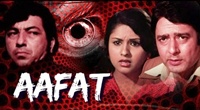
Durga Pooja Full HD Movie Download

Tawaif Full HD Movie Download

Umar Pachpan Ki Dil Bachpan Ka Full HD Movie Download

Idhaya Thirudan Full HD Movie Download
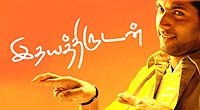
Vishwanath: The Power Full HD Movie Download

Abohomaan Full HD Movie Download
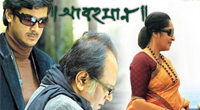
Kanku Ni Kimat Full HD Movie Download
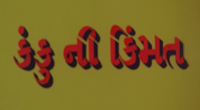
Raaj-The Showman Full HD Movie Download

Kadaladu Vadaladu Full HD Movie Download

Rojavanam Full HD Movie Download

Chikkadu Dorakadu Full HD Movie Download
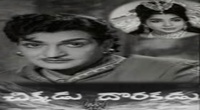
Analyze This Full HD Movie Download
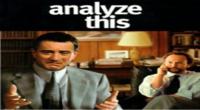
Allari Priyudu Full HD Movie Download
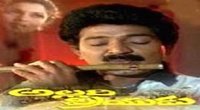
Kanulu Musina Nuvve Full HD Movie Download
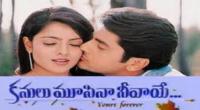
Swati Full HD Movie Download

Kalavari Kodallu Full HD Movie Download
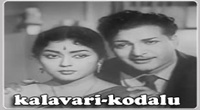
Japanil Kalyanaraman Full HD Movie Download
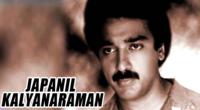
Salaam Namaste Full HD Movie Download

Download latest Movie from bollywood
- 1> baaghi 3
- 2> THE SKY IS PINK MOVIE FULL STORY AND REVIEW
- 3> Luka Chuppi
- 4> TO ALL THE BOYS I’VE LOVED BEFORE
- 5> Kabir Singh
- 6> Street Dancer 3D
- 7> Simmba
- 8> Gone Girl
- 9> The Girl Who Lived
- 10> Ludo
- 11> DILWALE DULHANIA LE JAYENGE
- 12> GUILTY
- 13> The Godfather
- 14> Adventures of Rusty
- 15> Sooryavanshi
- 16> Satyameva Jayate 2
- 17> Thappad
- 18> Bhool Bhulaiyaa 2
- 19> KGFChapter 2
- 20> Mardaani 2
- 21> Pinjar
- 22> Shivaji maharaj
- 23> Ek Villian 2
- 24> Hungama 2
- 25> Divergent
- 26> Mumbai Saga
- 27> The Internship
- 28> HIT (telugu)
- 29> Panga
- 30> The perfect date
- 31> 16 December
- 32> Gopala Gopala (Telugu)
- 33> Brahmastra
- 34> Gangubai Kathiawadi
- 35> Manmadhudu
- 36> Nenu local
- 37> Mahanati
- 38> Shatamanam bavathi
- 39> Lagaan
- 40> After
- 41> MOM
- 42> Shamshera
- 43> Raguvaran BTech
- 44> Khakee
- 45> The villain
- 46> OM
- 47> Mr. perfect
- 48> Bueatifull mind
- 49> Hichki
- 50> Gabbar Singh
- 51> Jogi
- 52> Before Sunrise
- 53> Before Sunset
- 54> Before Midnight
- 55> The Big Bull
- 56> Top Gun: Maverick
- 57> The Purge
- 58> The Sky is Pink
- 59> Laxmmi Bomb
- 60> Sadak 2
- 61> Sufna
- 62> Prithviraj
- 63> PK
- 64> Coolie No 1(2020)
- 65> Black Widow
- 66> Dear Zindagi
- 67> Dil Bechara
- 68> PHIR HERA PHERI
- 69> WAR
- 70> Dostana
- 71> RRR: Roudram Ranam Rudhiram
- 72> Maidan
- 73> Dabbang 3
- 74> Chhalaang
- 75> life as we know it
- 76> SherShaah
- 77> Sandeep Aur Pinky Faraar
- 78> Event Horizon
- 79> 83
- 80> Radhe: Your Most Wanted Bhai
- 81> Gunjan Saxena: The Kargil Girl
- 82> Mr India
- 83> Vivah
- 84> Anokha Bandhan
- 85> Ghost
- 86> Bhoot: Part One - The Haunted Ship
- 87> Haseen Dilruba
- 88> Laal Singh Chaddha
- 89> Qismat
- 90> Rajput
- 91> Drive
- 92> Dil Chahta Hai
- 93> Dil Ki Baazi
- 94> Dil Ka Rishta
- 95> Teesri Manzil
- 96> Dil
- 97> Love Aaj Kal
- 98> Khaali Peeli
- 99> Bunty Aur Babli 2
- 100> Atrangi Re
- 101> Gulabo Sitabo
- 102> Jodi
- 103> Suraj Pe Mangal Bhari
- 104> Deewana
- 105> Attack
- 106> Sardar Udham Singh
- 107> Toofan
- 108> THE LOVEBIRDS
- 109> Jersey
- 110> Ginny Weds Sunny
- 111> Thalaivi
- 112> Shiddat
- 113> Angels vs Zombies
- 114> Koi Mil Gya
- 115> Thank God
- 116> Bhuj: The Pride of India
- 117> Hum Aapke Hain Kaun
- 118> The Platform
- 119> Bird Box
- 120> Roohi Afzana
- 121> Torbaaz
- 122> Nikamma
- 123> World War Z
- 124> Extraction
- 125> Train to Busan
- 126> Life of Pi
- 127> SHAADI MEIN JROOR AANA
- 128> Himmat Aur Mehnat
- 129> To All The Boys: P.S. I Still Love You
- 130> Mimi
- 131> Good Newwz
- 132> Shubh Mangal Zyada Saavdhan
- 133> Raabta
- 134> Harry Potter and the Philosopher's Stone
- 135> Harry Potter and the Chamber of Secrets
- 136> Chhapaak
- 137> War of the Worlds
- 138> Harry Potter and the Prisoner of Azkaban
- 139> Harry Potter and the Goblet of Fire
- 140> MURDER MYSTERY
- 141> Shakuntala Devi
- 142> Bachchan Pandey
- 143> Jayeshbhai Jordar
- 144> Sheer Qorma
- 145> Saina
- 146> 'O' Pushpa I hate tears
- 147> Kedarnath
- 148> MS Dhoni The Untold Story
- 149> Chhichhore
- 150> Badhaai Ho
- 151> Unstoppable
- 152> Oz the Great And Powerful
- 153> The Girl on the Train
- 154> Haathi Mere Saathi 2020
- 155> The Conjuring: The Devil Made Me Do It
- 156> Gandhi Se Pehle Gandhi
- 157> The Song of Scorpions
- 158> Srimanthudu
- 159> Hello Guru Prema Kosame
- 160> Beauty and The Beast
- 161> Black Panther
- 162> Charlie and the Chocolate Factory
- 163> Bole Chudiyan
- 164> Fidaa
- 165> Duvvada Jagannadham
- 166> Bruce Lee: The Fighter
- 167> Hyper
- 168> Yaara
- 169> Red (2020)
- 170> Shivam
- 171> That Is Mahalakshmi
- 172> Nishabdham
- 173> Aashram 2020 web series
- 174> Laxmii
- 175> Mismatched
- 176> STUDENT OF THE YEAR 2
- 177> NAIL POLISH
- 178> Ramprasad Ki Tehrvi
- 179> KAAGAZ
- 180> 12 o Clock
- 181> The Power
- 182> bolo hau
- 183> Tribhanga
- 184> JAMUN
- 185> Madam Chief Minister
- 186> Maasaab
- 187> Aadhaar
- 188> Tanhaji
- 189> Bhaagi 3
- 190> Bhootnath
- 191> MALANG
- 192> Jai Mummy Di
- 193> Haathi Mere Saathi 2021
- 194> Shakeela
- 195> Unpaused
- 196> Annayya
- 197> Vamsoddharakudu
- 198> Mrugaraju
- 199> Narasimha Naidu
- 200> Sankranti
- 201> Manasu Maata Vinadhu
- 202> Anjaane
- 203> Apaharan
- 204> Bachke Rehna Re Baba
- 205> Bewafaa
- 206> Roohi
- 207> Radhe
- 208> Zindagi Khoobsoorat Hai
- 209> Yeh Mohabbat Hai
- 210> Yeh Kya Ho Raha Hai?
- 211> The Tomorrow War
- 212> DehradunDiary
- 213> Meri Shaadi Karaoo
- 214> Matruu Ki Bijlee Ka Mandola
- 215> No One Killed Jesica
- 216> Aag Ka Goola
- 217> Eight Million Dollars
- 218> Three Hundred
- 219> Cats and Dog
- 220> Decoy
- 221> Gold Rush
- 222> You Have Got Mail
- 223> Final Destination three
- 224> Tofan
- 225> Jungle
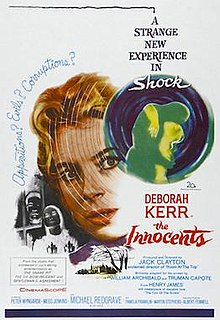 Story of movie The Innocents 1961 Film :
Story of movie The Innocents 1961 Film : 